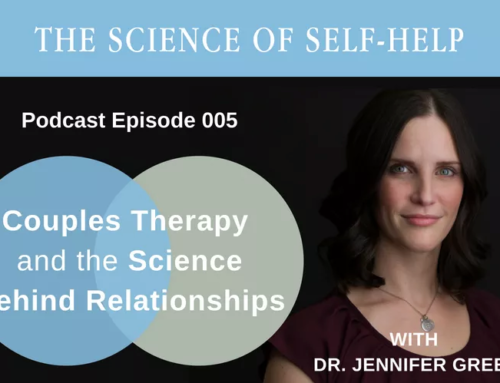Universal Aspects of Successful Medical Marriages
By: Dr. John “Jack” Crossen
SUMMARY. The study of medical marriages, in which one or both partners are doctors, has received increased attention in recent years as the health sector has begun recognizing the impact of physician well-being on patient care. Research on medical marriages confirm the findings of The Gottman Institute’s numerous studies, including the “Love Lab” research project, where couples were participated while living in apartment-like laboratories. The importance of a strong and healthy medical marriage is especially important given the profession’s high burnout rate and subsequent effect on the quality of patient care. Taking care of one’s marriage may help prevent burnout.
Studying medical marriages where one or both partners is a physician has a long history. Perhaps this research has been motivated by concern for the correlation between physician well-being and patient care. Recent investigations, for example, show constant marital conflict is linked to physical and mental health ailments. The healthcare community is recognizing that an unhealthy doctor leads to increased healthcare costs and less-than optimal care for patients.
What might the findings of The Gottman Institute research and ensuing couples therapy approach contribute to the understanding of medical marriages?
THE SOUND RELATIONSHIP HOUSE
The Sound Relationship House theory, developed and confirmed by decades of Gottman studies, provides a conceptual framework, or systematic way, for understanding marital outcomes and even testing hypotheses to gain further knowledge about marital happiness. The Sound Relationship House theory summarizes the longitudinal research showing how master couples have successful marriages.
An important question arises: Is this is also true of medical marriages?
MAYO CLINIC STUDY AND ‘DOSES’
Recent studies show the Sound Relationship House model, indeed, can readily account for the patterns of successful medical marriages. For example, a Mayo Clinic national survey of physicians’ spouses found marital “satisfaction strongly related to the amount of time spent awake with their physician partners each day.”
In medical terminology, this is known as a “dose-response relationship.” In this case, increases in the “dose” of “spending time together” dramatically increases the “response” of “marital happiness.” Higher dosages, greater benefits.
This seems strikingly similar to Sound Relationship House theory’s underlying theme of Friendship and Intimacy. The theory quite simply states marital happiness stems from the strength of a couple’s friendship and intimacy—both of which stem from relating in small, positive ways frequently while spending time together.
MEDICAL MARRIAGE IN THE SOUND RELATIONSHIP HOUSE
The Sound Relationship House framework outlines seven methods for increasing friendship and intimacy:
- Create Shared Meaning,
- Make Life Dreams Come True,
- Manage Conflict,
- The Positive Perspective,
- Turn Towards,
- Share Fondness and Admiration, and
- Build Love Maps.
When practiced and mastered, the result is a happy, healthy relationship – a Sound Relationship House. Interestingly, Gottman researchers studied various hypotheses so extensively that they can even pinpoint certain “doses” needed for a successful marriage.
For example, couples having a positive-to-negative ratio of at least 5-to-1 during conflict discussions – meaning a couple must have five positive interactions for every one negative interaction – will be happy and not divorce. This constructive management of conflict grows from an “emotional bank account” of goodwill developed from positive to negative ratios often about 20-to-1 while just hanging out together.

Studies show couples who spend time together, end up together.
MEDICAL MARRIAGES VERBATIM AND GOTTMAN THEORY
More recently, a fascinating qualitative study by the University of Michigan and published in the Academic Medicine investigated couples’ strategies—in their own words—for success in meeting the difficult challenges of their medical marriages.
Four themes consistently emerged from in-depth interviews with couples, and these themes are within the framework of the Sound Relationship House theory. They showed patterns of having each other’s interest in mind and being firmly present for the other.
The four themes are as follows
1. We rely on mutual support in our relationships.
The interview transcripts show they in-depthly knew each other’s worlds, expressed their needs gently, and turned toward each other to have their needs met. Physicians also shared how their partners helped them achieve their career goals.
“I give her sort of a sounding board that she can go over issues.”
“He is very supportive…If he wasn’t willing to shoulder a large burden of the primary childcare, picking up, dropping off, taking care of them, if I go out of town, I couldn’t do my job.”
In Sound House Relationship theory terms, they had built “Love Maps” of each other’s worlds, meaning they knew about each other’s past experiences, present stresses, and future goals. They were able to mutually give and receive support.
2. We recognize the important roles of each family member.
“He fixes things … . and I’m the organizer.”
“He does the bills … and I do the meal planning and grocery shopping … . It changes day to day and generally, I think we have felt it’s okay.”
According to the House theory, successful couples express “appreciation and fondness” for each other’s unique contributions.
3. We have shared values.
The couples often identified their beliefs about parenting, ethical integrity and hard work. Partners related how their shared values brought them together in closeness as they raised children to honor values of kindness, diligence and honesty.
We both value integrity, working hard and doing the right thing…I think what we want for our kids is the same.”
While noting solidarity values, there was open recognition that differences were also present and sometimes created conflict. However, couples emphasized respect for their differences.
“We do not agree on many things, and we have had issues with that.”
“We both bring, I think, different things to the marriage that we like and respect.”
4. We acknowledge the benefits of being a physician to our relationships.
The underpinning of fourth strategy – the acknowledgement of the benefits of having a physician in the family to meet life challenges – is implicit in the Sound Relationship House’s concepts of Love Maps, Turning Towards, and expressing Appreciation and Fondness.
“My son cracked open his eyebrow on the playground and clearly needed stiches. My husband was able to leave whatever he was doing and meet me at the school.”
The most obvious pattern emphasized in interview transcripts was how knowing each other’s world at home and at work facilitated a willingness to express needs and to readily turn toward each other’s needs.
SOUND RELATIONSHIP THEORY WITH WIDE APPLICATION
So, what do we make of this? Are successful medical marriages unique or similar to marriages where spouses work outside of medicine? While the research is not definitive, the similarities of these studies provide evidence easily interpreted in the theory of the Sound Relationship House. Perhaps we can view couples in these studies about successful medical marriages as “fellow travelers” in relationships with the “master” couples originally studied in Dr. John Gottman’s research.
In both groups of relationships (Love Lab research couples and medical marriages), we find the emergence of strong themes of knowing each other’s worlds, expressing appreciation, supporting and turning towards each other, prizing shared values and navigating conflict with respect.
Learn about The Gottman Institute’s couples workshops, The Art and Science of Love.
Contact Dr. Crossen if you are a therapist and want to refer your clients to a couples workshop, or if you would like to arrange a special workshop for your professional group.
Dr. Crossen is presenting The Art and Science of Love couples weekend workshop in Seattle on Nov. 3-4, 2017.
REFERENCES
Gottman, JM. The Science of Trust. New York: Norton, 2012.
Gottman, JM and Silver, N. What Makes Love Last? How to Build Trust and Avoid Betrayal. New York: Simon & Schuster, 2012.
Perlman, RL, Ross, PT Lypson, ML. Understanding the medical marriage: Physicians and the partners share strategies for success. Academic Medicine, 2015, 90, 63-68.
Shanafelt, TD et al. The Medical Marriage: A national survey of the spouses/partners of psysicians. Mayo Clinic Proceedings, 88, 216-225.




